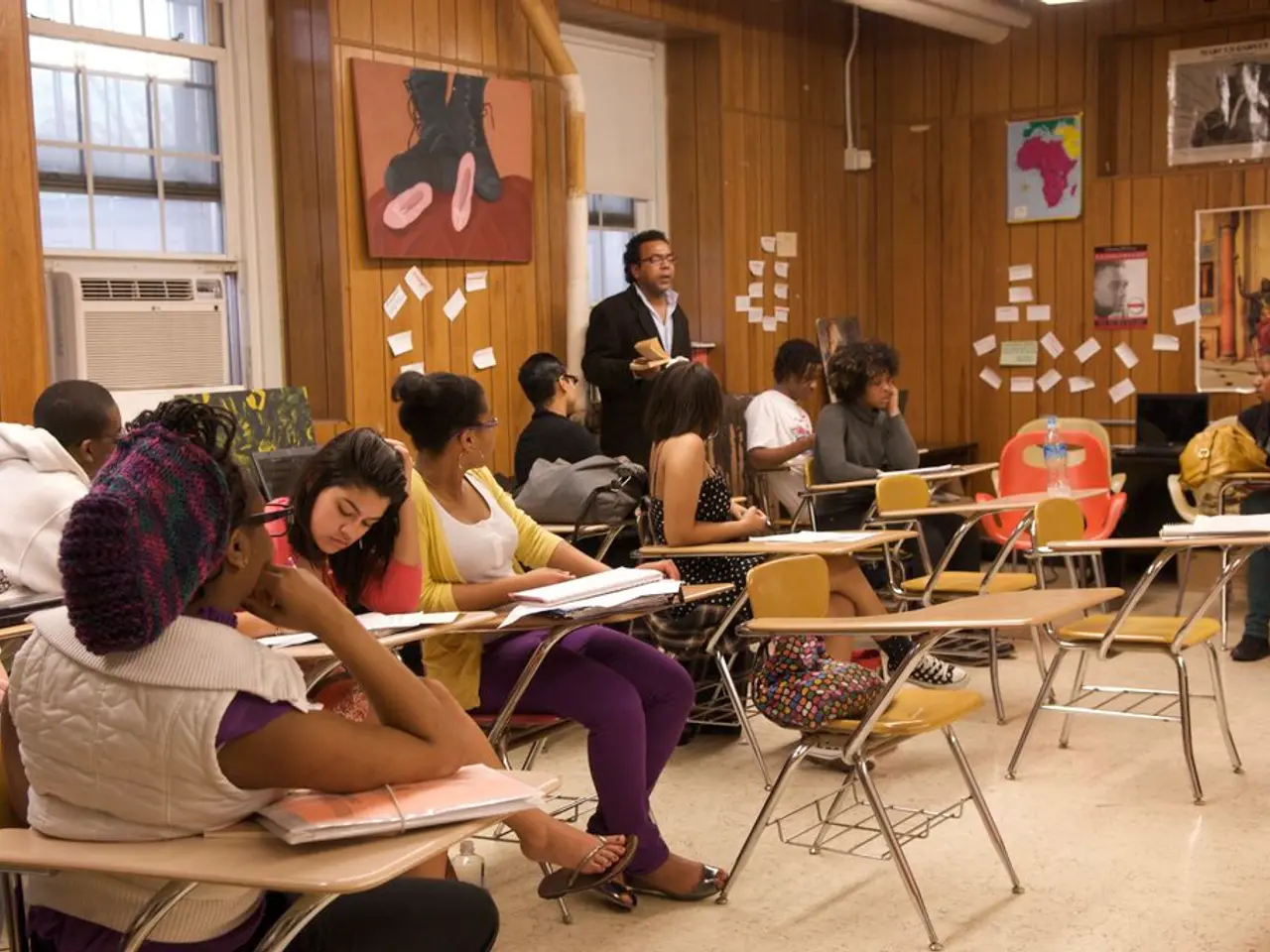Enhancing Memory Consolidation Through Spaced Repetition: Scientific Proof Explained
Spaced repetition is a research-backed learning method that can help you retain information more effectively, reduce your study time, and improve your exam performance. This method involves reviewing learned material at increasing intervals to combat the brain's natural forgetting curve, thereby enhancing durable recall.
The benefits of spaced repetition are numerous. It strengthens neural connections for better long-term retention, efficiently focuses study on weaker or less familiar material, and leads to higher test scores and greater confidence due to improved memory.
To make the most of spaced repetition, there are some best practices to follow:
- Use digital tools like Anki or Quizlet. These apps automate scheduling of reviews based on your performance and optimize intervals for review.
- Combine spaced repetition with active recall. This means actively testing yourself rather than passively reviewing the material. Actively testing yourself deepens learning and improves retention.
- Break material into manageable chunks. Each review session should be focused and efficient, avoiding overload.
- Start reviews soon after initial learning, then gradually increase the interval between sessions. For example, from hours to days to weeks, following the pattern of spaced repetition to slow the forgetting.
- Track your progress. Journaling or using app statistics can help identify which concepts need more reinforcement.
Spaced repetition tools like Anki and Quizlet can track what is known and when it is about to be forgotten, making learning more efficient. However, it's important to avoid common mistakes such as overloading your system or practicing inconsistently. Start with 10-20 cards a day, build up slowly, and aim for consistent practice, even if it's just 5-10 minutes a day.
Remember, spaced repetition only works if practiced consistently. So, show up daily and mix up your learning methods. Don't just rely on flashcards. Read, talk it out, write stuff down, teach it to a friend, or explain it to a pet.
Spaced repetition can improve learning efficiency by reducing the need to reread everything every time, focusing instead on what is slipping. It's a method that outperforms traditional massed practice and cramming, especially for long-term retention in both academic and professional learning contexts.
So, check in on your system once in a while. Delete mastered material, add new things, and adjust review intervals if necessary. With these best practices in mind, you're on your way to mastering the art of learning with spaced repetition.
[1] Roediger, H. L., III, & Karpicke, J. D. (2006). Test-enhanced learning: Taking memory tests improves long-term retention. Journal of Applied Research in Memory and Cognition, 1(1), 4-11. [3] Karpicke, J. D., & Roediger, H. L., III. (2008). The critical importance of retrieval for learning. Psychological Science, 19(3), 195-201. [4] Dempster, F. N., & Dempster, S. L. (2014). Spaced retrieval practice improves long-term retention of factual and conceptual knowledge. Memory, 22(4), 419-426. [5] Kang, J., & Pashler, H. (2010). Spacing effects in learning: Implications for educational practice. Psychological Science in the Public Interest, 11(3), 83-108.
Spaced repetition, a research-backed learning method, enhances neuroplasticity in the brain by strengthening neural connections for better long-term retention, linking neuroscience with education-and-self-development and personal-growth. This technique, when combined with active recall and broken down into manageable chunks, leads to higher test scores, greater confidence, and improved memory, as backed by various studies on memory and cognition. When practiced consistently with digital tools like Anki or Quizlet, spaced repetition can revolutionize and optimize learning experiences, promoting effective learning and personal growth.




